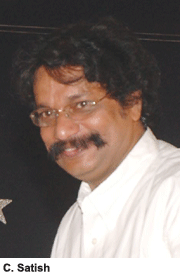Nearly seven months after the Right to Free and Compulsory Education Act 2009 (RTE Act) became operational on April 1 last year, the DMK-led Tamil Nadu government published the draft Rules for implem-entation of the Act on November 30 and has given the public a short time-frame to send their comments and amend-ments before January 5. However, implementation of the RTE Act in the near future is a doubtful proposition since schools, educationists, parents and NGOs have raised serious objec-tions to some provisions of the Act even as the state government’s draft Rules are being criticised as being too bureaucratic. Hardly surprising given that the members of the advisory committee which framed the Rules were all former and/or serving government officials.
“A major lacuna in the state’s draft Rules is replacement of local self governance authorities such as the panchayat, municipality or corporation with ‘local education authorities’ entirely comprising state government appointed officials. Moreover, the Rules are totally silent on the quality of education dispensed by 52,303 state government primary-secondaries. Tamil Nadu should take a cue from the draft Rules of Puducherry which mandate a ‘cluster resource person’ to assist school heads in monitoring the quality of education; and from Kerala state Rules which have incorporated an excellent child tracking system through provi-sion of a unique identification number to identify drop-outs and ensure the RTE Act is properly enforced,” says social activist K.Shanmugavelayutham, convenor, Tamil Nadu Forum for Creche and Child Care Services (TN-FORCES), a non-government organisation which has 132 member organisations in its state-wide network.
A serious objection being voiced by private school managements is of practical difficulties in implementing s.12 (1) (c) of the RTE Act which makes it mandatory for every private school to admit poor neighbourhood children to the extent of 25 percent of the strength of class I. Implementation of this rule is particularly unviable for the state’s 5,934 private matriculation schools and 5,000 private nursery-primaries as the state government’s Tamil Nadu Schools (Regulation of Collection of Fee) Act 2009 has imposed tuition fee ceilings on them, fixed by the government appointed Justice Govindarajan Committee, which came into effect on July 21 last year.
“It is impossible for private schools to admit 25 percent of students from the weaker sections in class 1 without removing 25 percent of existing students. Moreover, providing free education to poor neighbourhood children is a tall order in Tamil Nadu as all private schools have been set rock-bottom fees by the Govindarajan Committee even as we are struggling to make ends meet. The draft Rules are not very clear about the quantum of reimbursement that will be provided for poor neighbourhood students admitted into private schools. There’s a lot of confusion,” says K.S. Natarajan, principal of the Saraswathi Vidyalaya Matriculation Higher Secondary School, Chennai.
 However most knowled-geable educationists in this southern seaboard state (pop.62 million) are inclined to appreciate the difference between the laudable purposes and intent of the RTE Act, even as they are critical of the ways and means being employed to implement it at ground zero level by bureaucrats intent upon business as usual. “Ideally schools should provide conducive environments for children to learn through continuous evaluation. Moreover every child should be given the option to study a subject of his choice after class X. Yet the Rules are silent on these issues,” says C. Satish, senior principal of the RMK group of schools, Chennai.
However most knowled-geable educationists in this southern seaboard state (pop.62 million) are inclined to appreciate the difference between the laudable purposes and intent of the RTE Act, even as they are critical of the ways and means being employed to implement it at ground zero level by bureaucrats intent upon business as usual. “Ideally schools should provide conducive environments for children to learn through continuous evaluation. Moreover every child should be given the option to study a subject of his choice after class X. Yet the Rules are silent on these issues,” says C. Satish, senior principal of the RMK group of schools, Chennai.
Quite clearly within the state’s 11,201 private schools, there’s pervasive fear of bureaucrats and politicians who have a notorious reputation for interfering with, and controlling private schools. Therefore the onus will be on the state government to clearly spell out the guidelines and facilitate effective implementation of the RTE Act. Investing additional and/or greater powers in the educracy, which is the problem rather than solution, is hardly the best way to implement this historic legislation and make it work.
Hemalatha Raghupathi (Chennai)